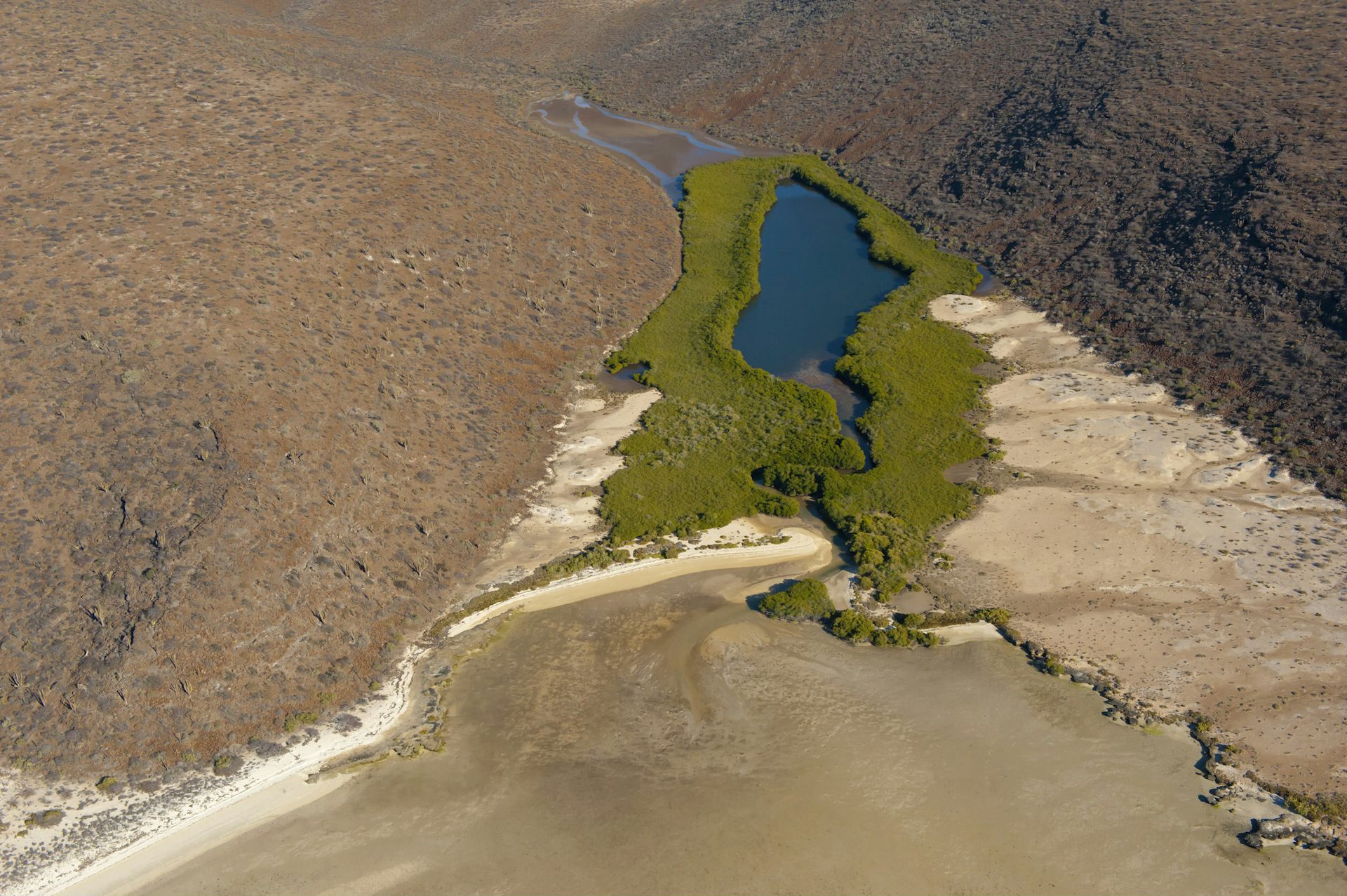Latin America
Related: About this forumThis message was self-deleted by its author
This message was self-deleted by its author (sl8) on Fri Nov 27, 2020, 11:31 AM. When the original post in a discussion thread is self-deleted, the entire discussion thread is automatically locked so new replies cannot be posted.
Judi Lynn
(164,122 posts)Went to find any information within quick reach on Mangrove trees, learned in this article from four years ago that others in Mexico are actually involved in "restoration projects" of mangroves.
This article describes the incredible value of desert mangroves in Mexico for anyone who has the time to scan it. They are amazing, and it's such a shame AMLO let special interests overcome his better judgement. Hope someone will enlighten him, as he is, after all, a progressive, and beloved just for that reason.
Mexican desert mangroves – small but valuable in dealing with climate change
March 28, 2016 3.04pm EDT
Mangrove patch in the arid landscape of Baja California Peninsula, Mexico. Octavio Aburto / iLCP, Author provided
Scientists have long known that mangroves provide vital barriers against storms and that these forests can store vast amounts of carbon.
An article published today in the Proceedings of the National Academy of Sciences highlights again why mangroves are important for coastlines, ecosystems and the planet’s human populations.
This study, however, moves away from the common stories of Indonesian mangroves and concentrates on Mexico, uncovering some surprising new details of desert mangrove forests that grow in lagoons and estuaries adjacent to the coastal desert ecosystems of the Baja California peninsula.
Until now desert mangroves have been somewhat unsung heroes in the mangrove world, assumed to play a minor role compared to their lush forest cousins of the global tropics. The new research finds that desert mangroves provide ecological services that have not been fully appreciated before, including storing carbon and guarding against rising seas in some cases.
Punching above their weight
In late 2013 and 2014, researchers from the Scripps Institution of Oceanography, UC Mexus and the Center for Biological Investigations, La Paz set out along the Mexican Pacific coastline to drill down into the sediments at different mangrove sites to try and get to the bottom of how peat formation occurs and how much carbon is stored below ground.
More:
https://theconversation.com/mexican-desert-mangroves-small-but-valuable-in-dealing-with-climate-change-56414
sl8
(17,109 posts)Until I saw this article I'd never considered Mexican Mangroves, let alone the politics/money that could be involved.
Judi Lynn
(164,122 posts)Sure hope he's going to seek counsel with some environmental specialists before long.
These plants seem heaven-sent, in my view!
Thank you.
Judi Lynn
(164,122 posts)6 November 2020
/Amelia Nichele
Study highlights ability to capture carbon and microplastics.
A new study highlights the heavy lifting marine ecosystems do in combatting environmental issues, finding that mangrove forests efficiently capture and store microplastics in their sediments.
An international team, led by King Abdullah University of Science and Technology (KAUST) in Saudi Arabia, collected nine core samples from mangrove forests in the Red Sea and Arabian Gulf, finding that their sediments had a higher plastic concentration than surface waters.
“Our research brings light to the mystery of missing marine plastic to reveal that mangroves, Blue Carbon habitats, are hugely efficient at trapping plastics and burying them in their soils where they cannot harm vulnerable marine life or human consumers,” says project supervisor Carlos Duarte.
The samples also revealed a pattern of plastic sedimentation that aligns closely with the history of the global production of plastics, the researchers note in a paper in the journal Science Advances.
More:
https://cosmosmagazine.com/earth/sciences/mangrove-forests-act-as-plastic-sinks/
